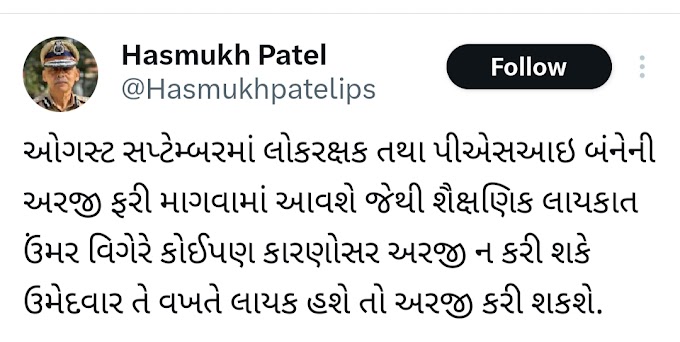What is monkeypox?
Monkeypox is an illness caused by the monkeypox virus. It is a viral zoonotic infection, meaning that it can spread from animals to humans. It can also spread from person to person.
Monkeypox can cause pneumonia and inflammation of the brain
Dr. Singh explains that monkeypox virus, like other viruses, can cause pneumonia. Cerebral encephalitis has also been observed in many monkeypox patients. This is called brain swelling. If this happens to a patient, he has to be put on a ventilator. In this case, death is likely.
Now it remains to be seen whether monkeypox patients are not showing severe symptoms of the virus and how the virus is affecting those suffering from stubborn diseases. In such a situation, it is necessary to research the pattern. The virus shows that monkeypox does not mutate and why it is spreading this time. It also has to be seen whether hospitalizations are increasing in areas where more cases are coming and how many days patients recover.
Will monkeypox rise like covid now?
Epidemiologist Dr. Jugal Kishor says monkeypox is a very old virus, it does not spread like covid. So far, out of 19 thousand cases, death cases are also less. In such a situation, there is no hope that monkeypox will be like Covid, but strict measures will have to be taken against this virus. Because it can be dangerous for young people. Because many people have not been vaccinated against measles, chicken pox and smallpox, in such a situation these people should be especially careful.
Patients with chronic disease should be cautious
People who are suffering from BP, diabetes and heart diseases also have to be careful. Because the body of these people is already fighting against an illness. In such a situation if monkeypox gets infected, it can cause many problems in the body. That's why people need to be careful with monkeypox
At this time people have to pay attention to the symptoms, causes and prevention of monkeypox. If a person experiences fever, headache, muscle pain and rash in any part of the body, then the doctors should be contacted immediately. To prevent monkeypox, hygiene and hand hygiene also need attention.
WHO President Tedros Adhanom Ghebreyesus declared monkeypox a global health emergency last Saturday. He said that the easiest way to prevent infection is to reduce physical intimacy.
1. The WHO president has advised that men at risk of monkeypox should consider limiting the number of current sex partners and reducing the number of sex partners and reconsidering sexual relations with a new partner. Also maintain restraint in hugging and kissing.
2. Ghebrius said that so far more than 18,000 cases of monkeypox have been reported from 78 countries. 70% of these cases are reported in Europe and 25% in America.
3. According to the model presented by the WHO, the average number of people infected by an infected person is between 1.4 and 1.8 among men who have sex with men but less than 1.0 among others.
4. In addition to WHO, the central government in India has also released guidelines. According to the Union Health Ministry, those infected with symptoms of monkeypox will be monitored.
5. Patient should be monitored for 21 days after exposure to contaminated material, infection. States have been directed to quickly identify new cases and take immediate steps to address them.
6. Minimizing the risk of human-to-human transmission, i.e. spreading, of monkeypox is an important public health measure for prevention.
An ongoing outbreak of monkeypox, a viral disease, was confirmed in May 2022. The initial cluster of cases was found in the United Kingdom, where the first case was detected on 6 May 2022 in an individual with travel links to Nigeria (where the disease is endemic). The outbreak marked the first time monkeypox has spread widely outside Central and West Africa. From 18 May onwards, cases were reported from an increasing number of countries and regions, predominantly in Europe but also in North and South America, in Asia, in Africa, and in Oceania. On 23 July, the Director-General of the World Health Organization (WHO), Tedros Adhanom Ghebreyesus, declared the outbreak a public health emergency of international concern. As of 2 August, there had been a total of 25,436 confirmed cases in nearly 80 countries that do not typically see cases.
Monkeypox is a viral infection that manifests a week or two after exposure with fever and other non-specific symptoms, and then produces a rash with lesions that usually last for 2–4 weeks before drying up, crusting and falling off.While monkeypox can cause large numbers of lesions, in the current outbreak, some patients experience only a single lesion in the mouth or on the genitals, making it more difficult to differentiate from other infections.[23] In infections before the current outbreak, 1–3 percent of people with known infections have died (without treatment). Cases in children and immunocompromised people are more likely to be severe.
Monkeypox spreads through close, personal, often skin-to-skin contact. The disease can spread through direct contact with rashes, or body fluids from an infected person, by touching objects and fabrics that have been used by someone with monkeypox or through respiratory secretions. An infected person can spread it to others from the time symptoms start until the rash has fully healed. According to the WHO, the unexpected appearance of monkeypox and the wide geographic spread indicate that it might have been circulating undetected and that the actual number of cases is likely to be underestimated. While monkeypox is not primarily a sexually transmitted disease and can affect anyone, as of 27 July, 98% of confirmed cases outside of the endemic regions in Africa occurred in the community of men who have sex with men (MSM). On 28 July, the WHO Director-General advised MSM to limit exposure by reducing the number of sexual partners, reconsidering sex with new partners, and maintaining contact details to allow for epidemiological follow-up.The Centers for Disease Control and Prevention has emphasized the importance of reducing stigma in communicating about the demographic aspects of monkeypox, specifically with regards to gay and bisexual men.
What causes monkeypox virus?
Monkeypox was discovered in 1958 when two outbreaks of a pox-like disease occurred in colonies of monkeys kept for research. Despite being named “monkeypox,” the source of the disease remains unknown. However, African rodents and non-human primates (like monkeys) might harbor the virus and infect people.
How do you get monkeypox 2022?
The monkeypox virus is spreading mostly through close, intimate contact with someone who has monkeypox. You can take steps to prevent getting monkeypox and lower your risk during sex.
What does monkeypox do to humans?
A rash that can look like pimples or blisters that appears on the face, inside the mouth, and on other parts of the body, like the hands, feet, chest, genitals, or anus. The rash goes through different stages before healing completely. The illness typically lasts 2-4 weeks
How do you get rid of monkeypox?
CDC holds an expanded access protocol (sometimes called “compassionate use”) that allows for the use of stockpiled tecovirimat to treat monkeypox during an outbreak. Tecovirimat is available as a pill or an injection
Where does monkeypox rash start?
It typically starts on your face before spreading to other parts of the body. The rash is more common on the hands, feet, arms, and legs. It also tends to follow a particular pattern: Flat, round lesions (macules) grow into slightly raised bumps (papules), then into bumps filled with clear fluid (vesicles
How long does it take for monkeypox symptoms to Show Up?
Monkeypox symptoms usually start within 3 weeks of exposure to the virus. If someone has flu-like symptoms, they will usually develop a rash 1-4 days later. Monkeypox can be spread from the time symptoms start until the rash has healed, all scabs have fallen off, and a fresh layer of skin has formed.
What is monkeypox?
Monkeypox is an illness caused by the monkeypox virus. It is a viral zoonotic infection, meaning that it can spread from animals to humans. It can also spread from person to person.
Can children get monkeypox?
Children can catch monkeypox if they have close contact with someone who has symptoms. Data from previously affected countries show that children are typically more prone to severe disease than adolescents and adults. There have been a small number of children with monkeypox in the current outbreak.




